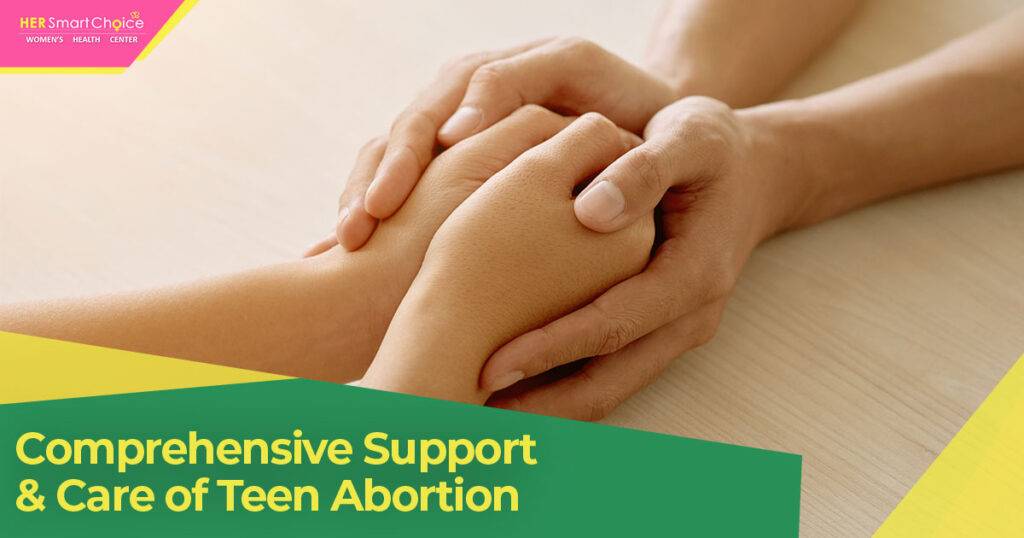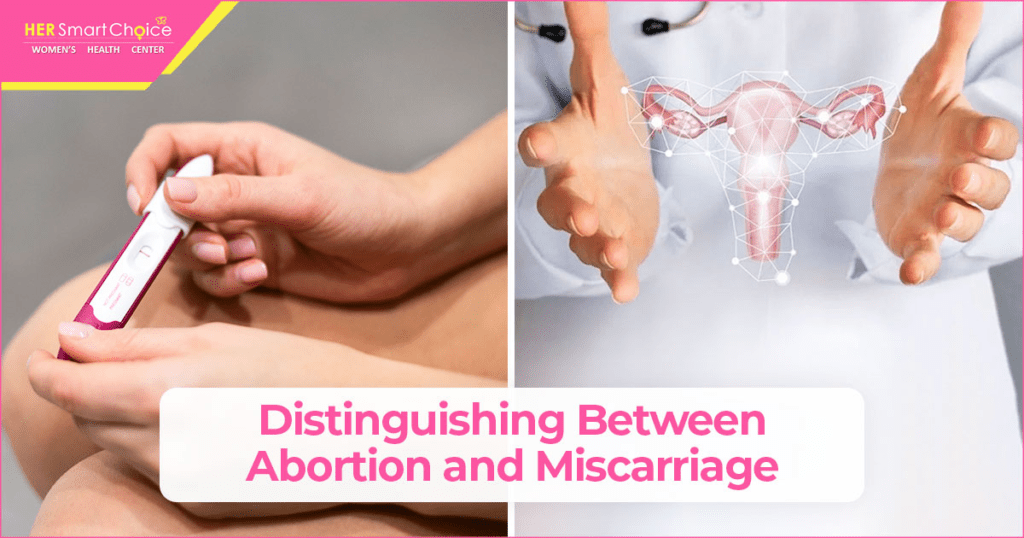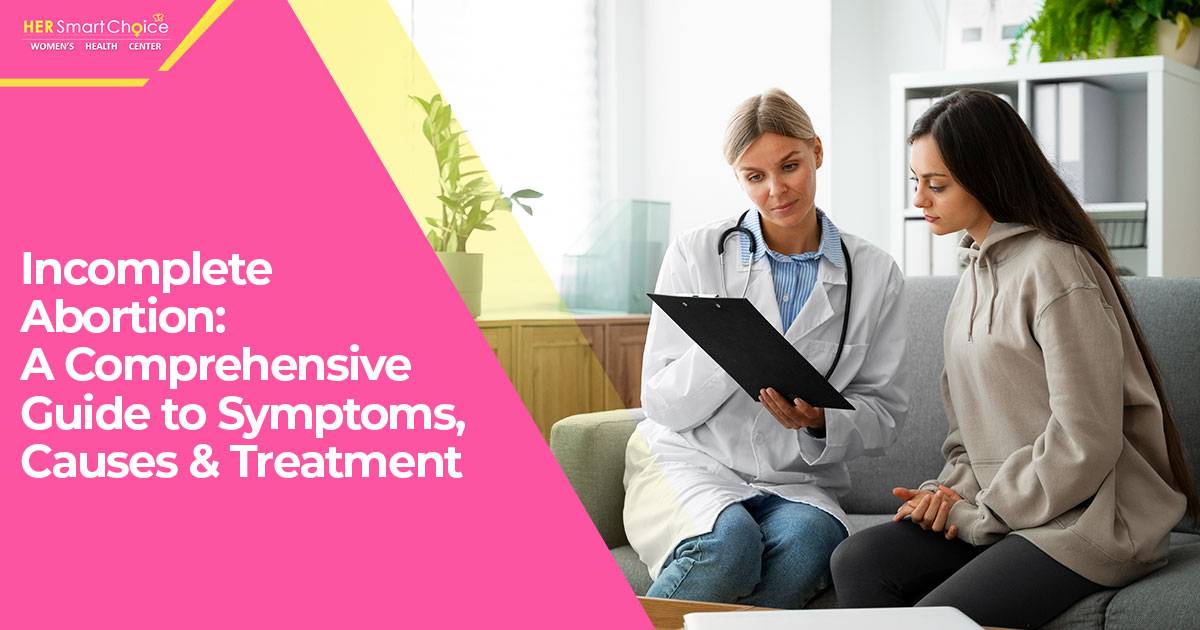Teen Abortion: Understanding the Complexities and Risks
Talking about teen abortion is important, but it’s not always easy. It involves health, feelings, and tough choices. But, in today’s world, teens are also required to be provided detailed knowledge about pregnancies and abortions as it is common nowadays.
Teenage pregnancies can be challenging situations that require careful consideration. In some cases, teenagers may choose to undergo an abortion. Let’s explore more about teen abortion, and the complexities and risks associated with it. Understanding these factors is crucial for informed decision-making and ensuring the overall well-being of young individuals.
What is Teen Abortion?
Teen abortion happens when someone under 20 years old decides to end a pregnancy. This is a big decision that can be influenced by lots of things, like family, money, and health. It’s important to understand that every person’s situation is different, and what’s right for one might not be right for another.
How It Can Make You Feel Emotional
Deciding to have an abortion, no matter your age can make you feel a bunch of different emotions. But for teenagers, these feelings can be even stronger because being a teenager is already a time when emotions can be all over the place. Some people might feel relieved after an abortion because it was the right choice for them. Others might feel sad or guilty.
It’s okay to have these feelings, and it’s important to have someone to talk to about them. Well, friends, family, or a counselor can offer support during this time.
The Complexity of Teenage Pregnancies
Teen Pregnancy Rates:
Teenage pregnancy rates vary across different regions and cultures. Factors such as education, socioeconomic status, and access to reproductive healthcare can influence these rates. It is important to acknowledge that teenage pregnancies can be emotionally and physically demanding for young individuals.
Emotional and Social Considerations:
Teenage pregnancies often come with unique emotional and social challenges. Young individuals may face stigma, societal judgment, and difficulties in continuing their education or pursuing career goals. These factors can impact their decision-making process regarding continuing the pregnancy or considering an abortion.
Understanding Teen Abortion

Legal Considerations:
Laws regarding abortion for teenagers vary from country to country and even within different regions. It is crucial to understand the legal framework and parental involvement requirements in your specific location. Consulting with a healthcare provider or reproductive health clinic can provide guidance on the legal aspects of teen abortion.
Access to Healthcare and Counseling:
Teenagers considering an abortion should have access to comprehensive reproductive healthcare services. This includes access to healthcare providers, counseling, and accurate information about the procedure, its risks, and alternatives. Supportive and non-judgmental healthcare professionals can help teenagers navigate their options and make informed decisions.
Risks and Considerations of Teen Abortion
Physical Risks:
Abortion, like any medical procedure, carries potential risks and complications. These risks can include infection, excessive bleeding, damage to the uterus, or adverse reactions to anesthesia. However, with proper medical care and adherence to guidelines, the risks associated with abortion are generally low.
Emotional Impact:
Teenagers may experience a range of emotions before, during, and after an abortion. It is essential to acknowledge and address the potential emotional impact of this decision. Teenagers should have access to counseling services or support groups to help them navigate their feelings and emotions throughout the process.
Future Fertility and Reproductive Health:
There is a common misconception that abortion can negatively impact future fertility. In reality, when performed by trained healthcare professionals, abortion does not generally affect a person’s ability to conceive or carry a pregnancy in the future. However, it is crucial to follow post-abortion care guidelines and seek regular reproductive healthcare to maintain overall reproductive health.
Comprehensive Support and Care of Teen Abortion

Confidentiality and Privacy:
Teenagers seeking abortion services have the right to confidentiality and privacy. Our experienced healthcare providers are bound by ethical and legal obligations to protect a teenager’s personal and medical information. This ensures that teenagers can access the care they need without fear of judgment or disclosure.
Emotional Support and Counseling:
Teenagers facing the complex decision of abortion should have access to emotional support and counseling services. These resources can help them process their feelings, address any potential emotional challenges, and develop coping strategies for the future.
Post-Abortion Care:
After an abortion, teenagers should receive appropriate post-abortion care and follow-up. This includes medical check-ups, contraception counseling, and information about reproductive health. It is important to prioritize overall health and well-being during the recovery process.
Final Thoughts
Teen abortion is a complex and sensitive topic that requires careful consideration of the physical, emotional, and social aspects involved. It is essential to provide comprehensive reproductive healthcare, access to counseling, and a supportive environment that respects a teenager’s autonomy and well-being.
By addressing the complexities and risks associated with teen abortion, we can ensure that young individuals receive the care and support needed to make informed decisions about their reproductive health. You can visit Her Smart Choice, your nearest abortion center, to get brief knowledge and services.









































 Aspiration abortion is a surgical procedure performed in
Aspiration abortion is a surgical procedure performed in 
